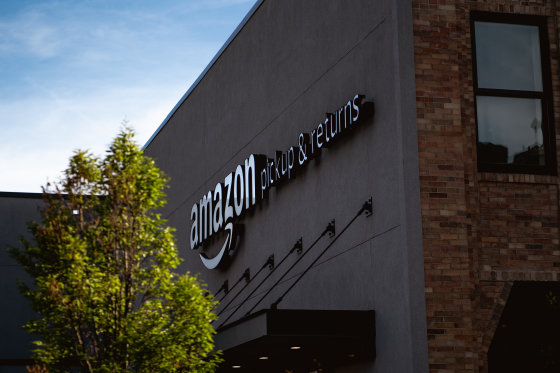Five 'small but serious lies' with Google, Facebook, Amazon, Apple

At a hearing held by the Antitrust Subcommittee on Wednesday, July 29, 2020, Google's CEO Thunder Pichai, Amazon's CEO Jeff Bezos, Facebook's Mark Zuckerberg CEO, Apple's Tim Cook CEO Gave testimony and answer. In the reply, each CEO reiterated 'plausible' words, which include significant lies, said technology columnist Jeffrey A. Fowler.
The 5 biggest little lies tech CEOs told Congress — and us-The Washington Post
Congress forced Silicon Valley to answer for its misdeeds. It was a glorious sight | Technology | The Guardian
https://www.theguardian.com/commentisfree/2020/jul/30/congress-forced-silicon-valley-to-answer-for-its-misdeeds-it-was-a-glorious-sight
In a hearing , it was revealed that ' Facebook's acquisition of Instagram was aimed at'empowering competitors'' , and Bezos' suspicion of using third-party sales data ``I violated the policy There are many facts that have been revealed, such as 'We cannot guarantee that there is no such thing .'
Whether Google, Amazon, Facebook, Apple are monopolizing the market by cleaning up rivals, each CEO's remark is like this-GIGAZINE

In the pursuit of both CEOs, 'I don't know about that' and 'I'll get back to you', the Guardian said, 'These technology companies have been doing their business for years. I wasn't ready to answer because I wasn't asked for the truth.' In addition, both the Bush administration and the Obama administration have a major problem that the antitrust law subcommittee has approved the merger, despite the many evidences revealed at this hearing. Is going up.
In addition, while all companies have repeatedly said that 'user privacy is important' and 'improving to provide a better experience for consumers', actual behavior does not reflect that word. There was no. 'The hearing revealed five'fools with little but big results,' said CEO CEO Jeffrey A. Fowler, Washington Post technology columnist.
1: User has his data under control
As Pichai and Zuckerberg insist, it's true that consumers are offered a way to set privacy preferences on the platform. However, if the way you use them is unclear or difficult to use, it is synonymous with 'cannot manage your data.' In the 2019 survey, 81% of Americans are considered to be 'not at all control the collection of data by the company', that is 59 percent not been able to understand how companies are using how the data found want I did .
CEO Pichai said when asked by lawmakers at a hearing, 'Do you mean, 'Collecting more data does not mean more money to collect on Google?'?' Most of the data we collect today is meant to help our users and return a personalized experience.'
But Google is undoubtedly the world's largest advertising company, and the data it collects is what drives it. A lawmaker told Pichai, 'Users are forced to surrender because of Google's control.'

2: Users have many choices
Many CEOs also said that 'the consumer decides' and 'the user has many choices'. However, tech companies understand that 'users are driven by convenience,' while compelling users to make certain choices by making products 'inconvenient.'
'People have more potential sources of information than ever before,' said Pichai, but even with the choice, 'Google Chrome, a popular web browser, is the most popular OS Android As long as Google is creating a 'built into' situation, it's difficult to access information without using Google Search. The choice, if any, does not reduce your dependence on Google.
'It's almost impossible to use the Internet without somehow using the services of these four companies,' said Gerold Nadler.
3: Technology companies are not that big
Bezos said, 'Amazon's share is less than 1% of the global retail market of $ 25 trillion (about 2600 trillion yen) and less than 4% of the US retail market,' the company is big enough to be a market monopoly Emphasized that it is not the scale. But Rep. Joe Negz asked CEO Bezos why he counted all retailers, including gas stations, as competitors. Amazon accounts for 38% of the US market in online shopping, and if you limit the categories such as books, the market share will increase further.

Bezos tried to obscure the retail “distribution channel” and the overall “market”, but other CEOs also responded by obscuring the definition of the market.
4: Providing only the most relevant information
“We are always focused on providing the information most relevant to our users,” says Pichai. However, year after year, Google tends to keep users on the search results screen rather than directing them to the website.
It is pointed out that the top Google search results are occupied by ``Google owned websites''-GIGAZINE

Similarly, Amazon's smart speakers are also guiding to Amazon products when users ask about non-Amazon products, which Bezos also acknowledges. Although we say 'most relevant information', we are actually inviting our products.
5: Social media does not benefit from harmful information
Zuckerberg acknowledges that social media is responsible for limiting the spread of content that can harm people.
However, Facebook actually contains a lot of false information. This is because the business of Facebook is built on the user's attention and it is a model of 'displaying advertisements and making money', so the more controversial the content is, the more diffused it is The cause is that it ends up. It is necessary to 'retain people on the platform' for the purpose of 'displaying advertisements', and therefore the business of 'engagement has priority' is the problem of Facebook's misinformation spread.
Related Posts:
in Web Service, Posted by darkhorse_log





